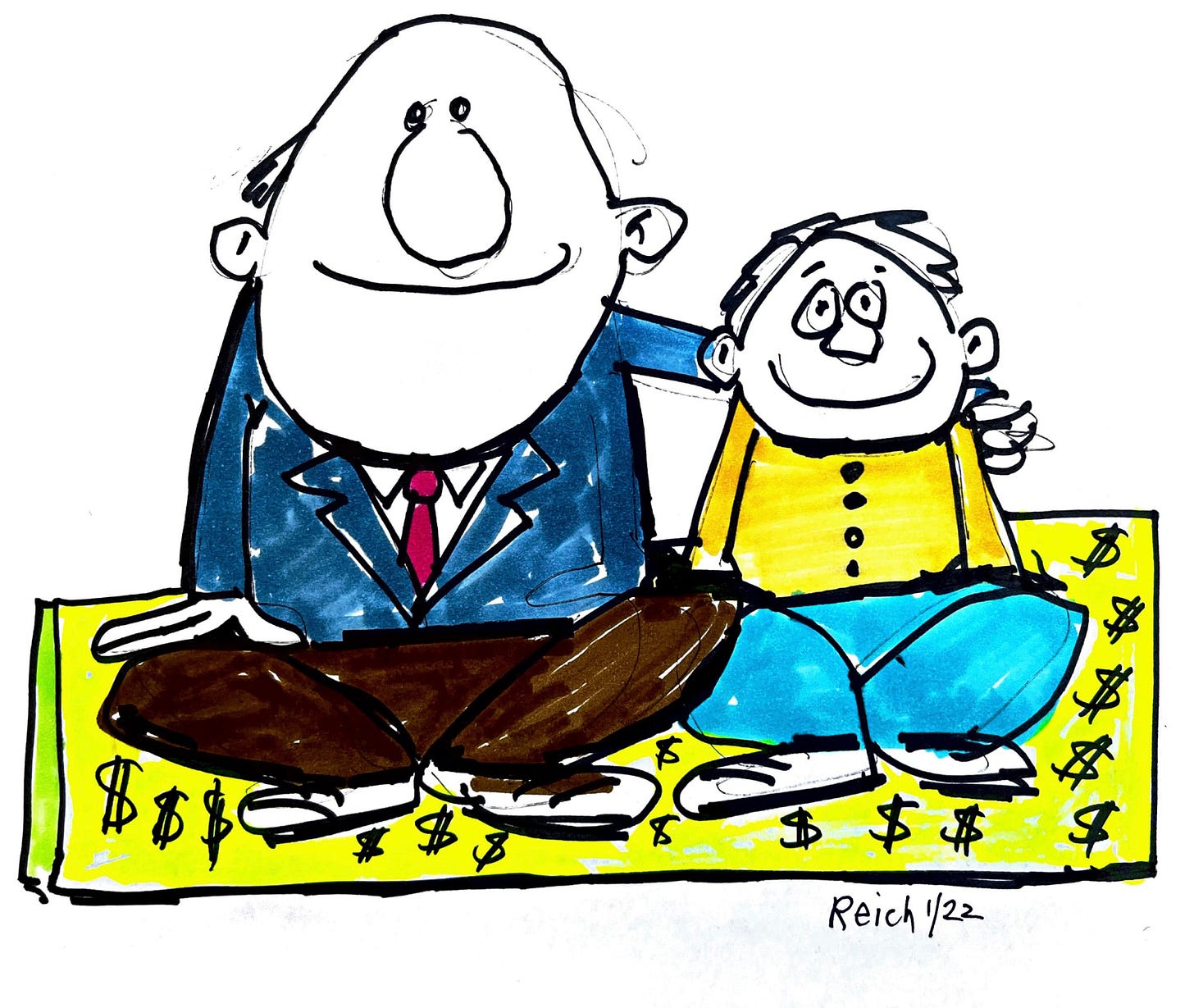In light of the news this week that the economy has been growing at a record rate (and corporate profits are also hitting record highs, the stock market notwithstanding), several of you have asked me specifically what can be done to spread the benefits of economic growth. I have a few ideas, which I’ll share with you in coming weeks.
One idea is an old one that was tried with great success but is now all but forgotten. It’s called profit-sharing. It emerged from the tumultuous period when America shifted from farm to factory. In 1916, Sears, Roebuck and Co., then one of America’s largest corporations with over 30,000 employees, announced that it was embarking on a major experiment — profit-sharing. The firm gave workers shares of stock, making them part owners.
Shortly thereafter, the Bureau of Labor Statistics issued a report on profit-sharing, suggesting it as a way to reduce the “frequent and often violent disputes” between employers and workers. Profit-sharing gave workers an incentive to be more productive since the success of the company meant higher profits would be shared. It also reduced the need for layoffs during recessions because payroll costs dropped as profits did.
Profit-sharing proved a huge success. Other companies that joined the profit-sharing movement included Procter & Gamble, Pillsbury, Kodak, and U.S. Steel.
By the 1950s, Sears workers had accumulated enough stock that they owned a quarter of the company. And by 1968, the typical Sears salesperson could retire with a nest egg worth well over $1 million (in today’s dollars).
There was a downside. When profits went down, workers’ paychecks would shrink. And if a company went bankrupt, workers would lose all their investments in it.
The best profit-sharing plans have been in the form of cash bonuses that employees can invest however they wish, on top of predictable wages. At Lincoln Electric, for instance, which has had profit-sharing since 1934, employees receive a profit-sharing cash bonus worth, on average, 40 percent of their annual base earnings.
But profit-sharing with employees has all but disappeared in large corporations, which since the start of the 1980s — and the advent of corporate “raiders” (now private-equity managers) — have focused on maximizing shareholder returns. Sears phased out its profit-sharing plan in the 1970s (and filed for bankruptcy protection in 2018).
Yet profit-sharing with top executives has soared — as big Wall Street banks, hedge funds, private-equity funds, and high-tech companies have doled out huge amounts of stock and stock options to their MVPs.
The result? Share prices have gone into the stratosphere while wages have barely risen. Researchers have found that increases in share prices before the late 1980s could be accounted for by overall economic growth. Since then, a large portion of the dramatic increases in share prices have come out of what used to go into wages.
Jeff Bezos, who now owns around 10 percent of Amazon’s shares of stock, is worth $210 billion overall. Other top Amazon executives hold hundreds of millions of dollars of Amazon shares. But most of Amazon’s employees, such as warehouse workers, haven’t shared in the bounty.
Amazon used to give out stock to hundreds of thousands of its employees. But in 2018 it stopped doing so, and instead raised its minimum hourly wage to $15. The wage raise got headlines and was good PR, but Amazon’s decision to end stock awards was more significant.
If Amazon’s 1.2 million employees together owned the same proportion of Amazon’s stock as Sears workers did in the 1950s — a quarter of the company — each Amazon employee would now own shares worth an average of over $350,000.
America’s trend toward higher profits, higher share prices, mounting executive pay, but near stagnant wages is unsustainable, economically and politically. How to encourage profit sharing? Corporate taxes should be lower on corporations that share profits with all their workers, and higher on those that don't.
Sharing profits with all workers is a logical and necessary step to making the system work for the many, not the few.
What do you think?











